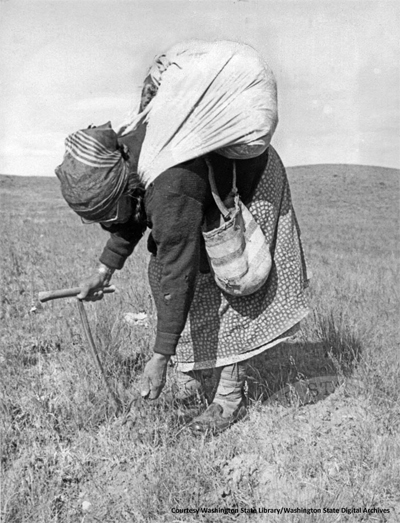[ ⋇ ]
Indigenous peoples have been pigeonholed by social scientists into one of two categories, “hunter-gatherer” or “agriculturist,” obscuring the ancient role of many indigenous peoples as wildland managers and limiting their use of and impacts on nature to the two extremes of human intervention. The image evoked by the term hunter-gatherer is of a wanderer or nomad, plucking berries and pinching greens and living a hand-to-mouth existence; agriculturist, at the other extreme, refers to one who completely transforms wildland environments, saves and sows seed, and clears engulfing vegetation by means of fire and hand weeding. This dichotomous view of nature– human interactions has shut out the fact that Indian groups across California practiced many diverse approaches to land use, and it has led to a focus on domestication as the only way humans can influence plants and animals and shape natural environments. (Anderson, Tending the Wild, 2005. p 125)
